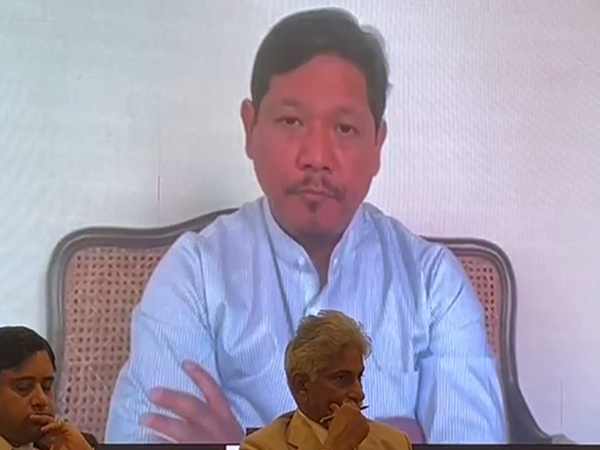Kazakhstan to hold first legislative election under President Tokayev
Dec 05, 2020

Nur-Sultan [Kazakhstan], December 5 : Legislative elections in Kazakhstan are scheduled to be held on January 10, 2021, to elect the members of the Majilis (a lower house of the Kazakh Parliament) and Maslikhats (local representative bodies) and they will be different from previous elections in many ways.
For the first time in 16 years, parliamentary elections will not be held ahead of schedule. The regular elections were held only in 1999 and 2004, and early elections have been held in Kazakhstan since 2007, as reported by The Astana Times.
The Majilis is the lower chamber of the Kazakh Parliament consisting of 107 members, who are elected for a five-years term. According to Kazakhstan's Central Election Commission, five political parties will run in the upcoming elections - "NurOtan", "AkZhol", "People's Party of Kazakhstan", "Auyl People's Democratic Patriotic Party" and"Adal Party" (former "Birlik Political Party"). Currently, the NurOtanparty has a majority of 84 members in the Majilis, the AkZhol and the People's party have 7 members each.
The elections to the Majiliswere declared on October 21 by the Kazakh President Kassym-JomartTokayev. Nine members are elected by the Assembly of People of Kazakhstan, an advisory body under the President of Kazakhstan whose members are drawn from organizations representing all major ethnic communities living in Kazakhstan, according to The Astana Times.
The polls will be the first parliamentary elections since President Tokayev succeeded NursultanNazarbayev, who resigned in March last year after nearly three decades in power.
The systemic and political reforms that President Tokayev's administration has introduced since he stepped into the presidential office in June 2019, will be given a chance to flourish in the major elections, EU Reporter reported citing The Astana Times.
The reforms include a 30 percent quota for women and youth in the party list, the welcoming of a culture of opinion and opposition, and the formation of a parliamentary opposition institute. The last elections for the Majilis were in March 2016.
The elections to Maslikhats (representative local authority bodies) will for the first time be held based on party lists, which according to Tokayev will "enable parties to strengthen their position in the country's political system".
In August, seventeen members from the nation's 14 regions and cities of Nur-Sultan, Almaty and Shymkent were elected to the Senate, the upper chamber of the Kazakh Parliament.
The renewed composition of the Kazakh parliament, noted President Tokayev in October, will focus on "quality legislative support for social and economic reforms in the country".
"The serious economic crisis stemming from the coronavirus pandemic has affected many countries and adversely impacted the entire global economy. At these challenging times, Kazakhstan has to take effective anti-crisis measures, ensuring sustainable economic development, social wellbeing of our citizens, and improving the well-being of the people", said Tokayev, encouraging all citizens to take part in the upcoming elections.
Political expert and journalist Eduard Poletayevalso said that the upcoming elections are different from the previous ones: "They (elections) are causing unprecedented social and political activity. All parties will participate in the elections. The elections will be held simultaneously for the Majilis and Maslikhats. This is also not quite usual. Also, for the first time, Maslikhats will be elected from party lists. There are also quotas for women and youth (30 percent) to be included in the party list. The coronavirus will also affect the election campaign".
The previous elections to the Majiliswere held in March 2016. Six political parties participated in the elections and three of them including the NurOtan (82.2 percent), the AkZhol Democratic Party of Kazakhstan (7.18 percent), and the National Party, which is the former Communist People's Party of Kazakhstan (7.14 percent), received more than 7 percent of the votes and won the right to send their representatives to the lower chamber of the Kazakh Parliament.


















